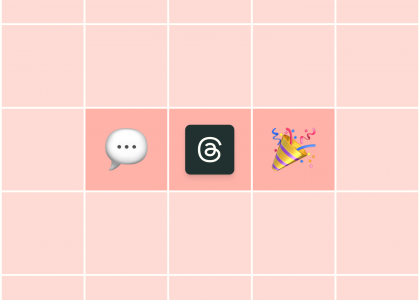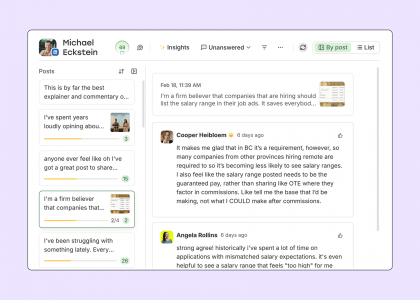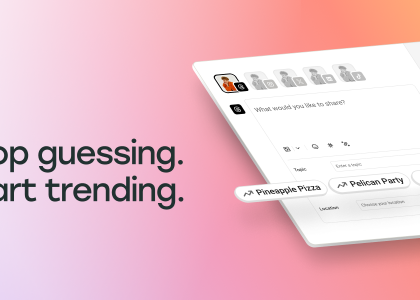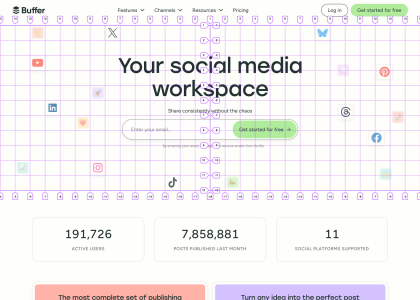I may not have Justin Welsh’s celebrity status on LinkedIn with half a million followers, but my journey is worth sharing. With just 30,000 engaged followers on LinkedIn, I managed to take my consulting business from a $0 startup to a thriving $100,000 yearly.
I started as a content marketing consultant, leaving behind my nine-to-five corporate engineering job in 2018. My LinkedIn became my business’ lifeline, connecting me with clients and global brands, while giving me the freedom and flexibility to earn more.
While I enjoyed my stint as an engineer at a big corporation, I soon realized it wasn’t for me. I wanted to build something of my own with a flexible schedule and better pay. I wanted the chance to network with industry leaders and work with more prominent brands.
I had dabbled in content marketing, but that moment five years ago was when I started taking freelancing more seriously. It wasn’t long before LinkedIn became my go-to platform for building awareness about my services, finding exciting projects, and networking with potential clients.
It’s been a long journey with lots of trial and error to get to where I am now. There are so many things I wish I had realized sooner — which is why I took all of my core lessons and created this guide to help you build your LinkedIn following more sustainably.
Note: There’s no right or wrong “strategy” to grow your LinkedIn following. What matters most is how sustainable is a strategy for you, not for a hundred other people. Factors such as how much time you can dedicate to LinkedIn, your experience with content creation tools at your disposal, your writing skills, and existing connections play a huge role in your success.
LinkedIn growth tactics that worked for me
There are countless tactics that people swear by — post six times every week, publish a carousel, text, video, everything all at once, comment under at least 50 posts as soon as influencers hit publish, etc.
The problem? It’s unsustainable.
You’re probably going to create content for a couple of days, get overwhelmed by these quantity-first strategies, and abandon your LinkedIn content creation journey. This is especially likely if you’re an introvert or still undecided on whether or not LinkedIn is “right” for you and worth investing time and effort into.
I’ve been there — I’d create a massive Notion database with content ideas, sign up for a social media management tool, and wait for my posts to go viral.
After posting consistently for a week or two, I got decent engagement. But the dopamine quickly faded because I had built this massive content machine before I was ready for it.
But after years of experiments (both failed and successful), I’ve finally cracked how to grow your LinkedIn account sustainably while driving closer to your goals.
Here are five things I’ve done and highly recommend to help you grow your LinkedIn following:
1. Find your unique point of view
To stand out, you need to have a distinctive point of view (POV). When you parrot someone else (or lean too heavily on AI-generated content), it’ll soon become a painstaking endeavor to create content regularly.
But when you blend personal experiences into your content, it’s much easier and more convenient to keep going. Plus, it will ensure you remain authentic, which, in turn, will help you build trust and credibility with your followers.
This means leaning on your wins, failures, mistakes, decision-making processes, personality, and instincts. Think about it: there are thousands of professionals out there who work in your niche. Is it possible everyone has the exact same day-to-day tasks? Or does everyone share the same challenges and have the same decision-making processes?
Your experiences and how you perceive them are unique. The tricky part is finding and sticking to your POV. It’ll take a couple of first ugly drafts (FUD), but over time, it’ll become second nature.
Here’s an exercise you can do to find your POV:
Think about your core values and beliefs. Something that other people may share but aren’t strongly opinionated about: find something you genuinely care about and are passionate about. Do you have a contrarian take on a norm? Think long and hard about it — for example, many companies put intense resources and time into hiring the right people but don’t spend enough time building a knowledge vault for easier product knowledge transfer and better onboarding. Dig deeper into your personal life experiences. For instance, I’m a software engineer turned marketer. So, I often talk about engineering concepts like agile and sprints and sprinkle them across my content to highlight my past experiences and build a sense of familiarity with my audience. Consider tapping into your personal interests, such as baking, gardening, traveling, or reading. Then, use that as a catalyst for your content. Use phrases and metaphors from your interests to explain the core topic of your LinkedIn post. Amanda Natividad is an excellent example of this — she is a Le Cordon Bleu-trained chef and often shares cooking metaphors, recipes, and pictures of amazing home-cooked food on her socials and newsletter.
It might take you a couple of weeks to figure out your voice, but once you do, it’ll help you create authentic content that resonates with your audience. Remember, there’s no magic formula, just small steps and much retrospection.
2. Create video content to drive engagement
I’ve found that video content gets higher engagement from the LinkedIn audience. And with AI-powered video editing tools like VEED and Riverside, you don’t need to be an editing wizard to create a video.
Pretty much any content could be a good fit for a video post: it could be as simple as sharing your experience, notifying your followers that you’re open for work, or a cool automation you recently built to reduce your manual tasks.
When I started sharing snippets of my podcast, The Content Playbook, on LinkedIn, they immediately gained traction and drove viewers to my YouTube channel.
Here are a couple of best practices I follow for high-engagement videos:
Aim for videos between one and three minutes for better retentionCreate a template for a consistent designMake sure your audio is crystal clear for better audience experienceHave a compelling hook at the beginning to capture your viewers’ attentionAdd subtitles from your video editor rather than relying on LinkedIn’s captioning Don’t post a standalone video. Instead, write a text-based post along with your video for more context. Add a call-to-action (CTA) at the end of your video to guide viewers to the next desired step (subscribe to my newsletter, follow me on LinkedIn, etc.)
Some resources that helped me get started:
How to be confident on camera (5 tips) by Ali Abdaal How to record video online and edit for free by VEED StudioTurn TRASH Audio into STUDIO Quality with Adobe Speech Enhancement [FREE] by Mr Web
Remember, nobody is watching you live, so you’re allowed to make mistakes or get stuck! A good idea is to have a script handy behind the camera to help you remember your vision. With time and practice, you’ll be making videos much more comfortably and efficiently.
3. Collaborate with others for even higher engagement
It’s not easy to start from scratch and build an audience, let alone get them to buy a service from you or trust you for your knowledge. So, if you can collaborate with people who already have an established audience, consider partnering with them to co-create content.
This way, you can cast a wider net, tap into their audience, and drive followers to your account — all while delivering value to their audience and building credibility.
Here are a couple of ways to partner with others on LinkedIn:
Create a carousel Record a short video togetherTag them in your postsLeave a thoughtful comment on their posts Host a LinkedIn Live event togetherAsk if they would be up for mentioning you (you’ll be surprised how friendly and supportive some LinkedIn members are)
Partnering with other creators on LinkedIn will not only drive additional eyes and engagement but also help you understand how others work, what their audience thinks, and how they create content to drive engagement.
4. Repurpose your content to be memorable
It’s essential to create original and authentic content — but that doesn’t mean you can’t repurpose your own content.
Repurposing is one of the most underrated social media tactics. Creators with huge followings often repeat their content, and it still drives solid engagement.
Plus, a bit of repetition will help you build your brand. People will start to associate you with your core messaging. For example, whenever I think of creators, I instantly associate them with Jay Clouse. Or, when I think of creating resonance-first content and storytelling, I think about Jay Acunzo. In the same way, you’d want your audience to remember you for specific topics.
Repetition on social media often gets a bad rap because most people think it means posting the same content over and over (it doesn’t).
I divide repurposed content into four major categories:
Sharing different facets of the same idea. e.g., Two posts around building a content strategy for small teams; one focuses on challenges, and the other on your personal experiences and wins.Repeating the same content in different formats. e.g., A text-based post turned into carousels or a video into an infographic.Repeating tweaked versions of your core messaging. e.g., As an engineer turned marketer, I highlight this quite a couple of times throughout my LinkedIn posts. Sharing your older posts again. Since LinkedIn doesn’t show your posts to 100 percent of your followers, there’s a great chance many of them haven’t even seen your original post. While this might seem a lazy approach to content creation, remember the time it took to create the original piece of content in the first place!
5. Maintain a consistent voice and design style
A consistent brand means higher affinity and recognition. It also establishes trust and communicates your personality, strengthening your distinctiveness. There are two critical pieces of the brand puzzle: your tone of voice and design style.
When it comes to the latter, I’ve found having a template in Canva makes this easy. I designed my podcast template with a set of colors that represented the vibe and message of the show. Whenever I want to create a podcast snippet for LinkedIn, I quickly grab the intro template and stitch together the specific clips.
Similarly, my LinkedIn banner, newsletter’s landing page, and graphics share the same color palette.
Getting your tone of voice right is also an essential part of brand consistency. Your voice defines your brand’s personality, while your tone impacts how people perceive and interact with your content. It could be friendly, casual, authoritative, supportive, or formal.
Depending on what you’re comfortable with and what aligns with your core values, choose a voice and tone for your LinkedIn content and stick to it.
Start creating content today!
LinkedIn has completely changed the trajectory of my career. If someone like me, who has a technical background and no academic marketing experience, can build a consulting business, you can achieve your goals, too.
Focus on cultivating relationships, building genuine connections, and exploring opportunities — all while delivering value to your audience. Instead of creating a bulky tech stack, consider using these three tools for easier and faster content creation:
Buffer for social media scheduling Canva for graphic design VEED for video creation and editing
If you want to learn more about how to build a content strategy, consider subscribing to my newsletter, The Content Playbook.






